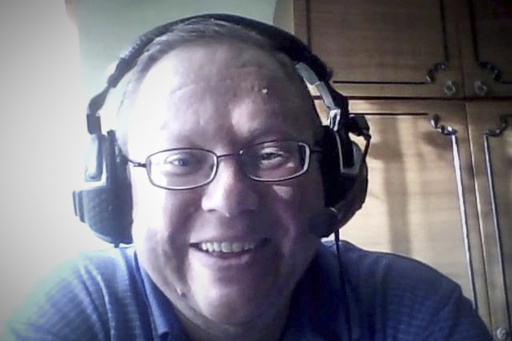In the quiet of night in April 2022, a troubling event unfolded in the Luhansk region of eastern Ukraine. Dmytro Shabanov, a security assistant working with the Special Monitoring Mission of the Organization for Security and Cooperation in Europe (OSCE), was abruptly taken from his home. His detention, along with two other Ukrainian OSCE workers, Maksym Petrov and Vadym Golda, marked the beginning of a distressing ordeal as they were apprehended by pro-Russian forces. This action occurred merely weeks after Russia’s large-scale invasion of Ukraine.
The three Ukrainian civilians remain imprisoned over three years later, not having been included in any recent prisoner exchanges. This has sparked alarm among OSCE officials, Western countries, and human rights groups who are advocating for their immediate release. Concerns have grown regarding the conditions of their detention, particularly in light of allegations of torture.
The Russian Foreign Ministry and the Russian mission to the OSCE have yet to respond to inquiries about these allegations or to questions regarding the OSCE personnel’s immunity from prosecution as international civil servants.
Margaryta Shabanova, the wife of Dmytro, described the harrowing experience of her husband’s abrupt disappearance. “He was taken from his home after the curfew took effect,” she recounted. After his arrest, he was held without communication for three months, during which time he was interrogated and coerced into signing a confession by Russian separatists.
Living through her husband’s absence is a daily struggle for Margaryta. “Every day I hope for change, but the hope slowly turns into despair,” she shared. She explained the emotional toll the prolonged separation has taken, detailing the silence and missed occasions that fill her life now. Despite people’s perceptions of her strength, she shared, “They don’t see the moments I collapse behind closed doors.”
Dmytro had a passion for his work with the OSCE, an organization headquartered in Vienna. The mission of the OSCE involves monitoring ceasefires, observing elections, and promoting democracy and arms control. The ceasefire monitoring mission in eastern Ukraine was vital, especially in regions afflicted by conflict between pro-Moscow separatists and Ukrainian government forces.
The mission, operational until March 31, 2022, faced impediment when Russia blocked its extension. The local separatist leaders subsequently declared it illegal. The involvement of Ukrainian staff like Shabanov, Petrov, and Golda was crucial to the mission’s operations in Luhansk and Donetsk, as they assisted in shutting it down, safeguarded vital OSCE assets, and supported the evacuation of international colleagues.
The arrests occurred despite the detainees carrying documentation of their immunity. In a September 2022 trial by a Russian-controlled court in Luhansk, Shabanov and Petrov were convicted of treason, receiving 13-year sentences. Meanwhile, in July 2024, Golda was convicted of espionage in Donetsk and sentenced to 14 years.
According to the Russian Foreign Ministry, the activities of the OSCE monitors were “often not only biased but also illegal.” Without naming the detained OSCE staff, it alleged that locals were being used by the West to gather intelligence for the Ukrainian military. These statements have been met with condemnation from the OSCE, which has called for the immediate release of the three men, emphasizing their role in fulfilling duties outlined by member states, including Russia.
In a development that added to the anxiety surrounding their situation, Shabanov was transferred to a high-security penal colony in Russia’s Omsk region in Siberia on March 27, 2025. Petrov remains at risk of a similar transfer. These penal colonies are notorious for harsh conditions, often rendering prisoners isolated from the outside world. The lack of adequate medical care could have dire consequences, especially given their existing health issues.
Reports have surfaced about the physical abuse endured by Shabanov and Petrov. Fellow detainee and Ukrainian human rights activist Maksym Butkevych recounted how the two men were tortured during interrogations. Shabanov, in particular, suffered beatings that left him unconscious, compounded by extreme psychological pressure.
These allegations suggest that their detention conditions could have wider implications. Butkevych speculated that the three individuals might be used as “bargaining chips” by Russia. Meanwhile, Finnish Foreign Minister Elina Valtonen, OSCE’s current chairperson, declared the situation “completely unacceptable” and emphasized that securing their release is a priority.
Yurii Vitrenko, Ukraine’s ambassador to International Organizations in Vienna, urged for the unconditional release of the three men. He criticized their illegal detention and the sham trial that led to their unjust sentences. Vitrenko called for greater international pressure on Russia to facilitate their release.
As Margaryta Shabanova continues to endure this harrowing chapter, her plea resonates with many: “Do not look away.” The agonizing wait for her husband’s return, she says, is marked by both despair and a glimmer of hope for a future where she can reunite with Dmytro. Her wish remains simple yet profound—a longing to see her husband walk through the door, symbolizing the end of this traumatic ordeal.


